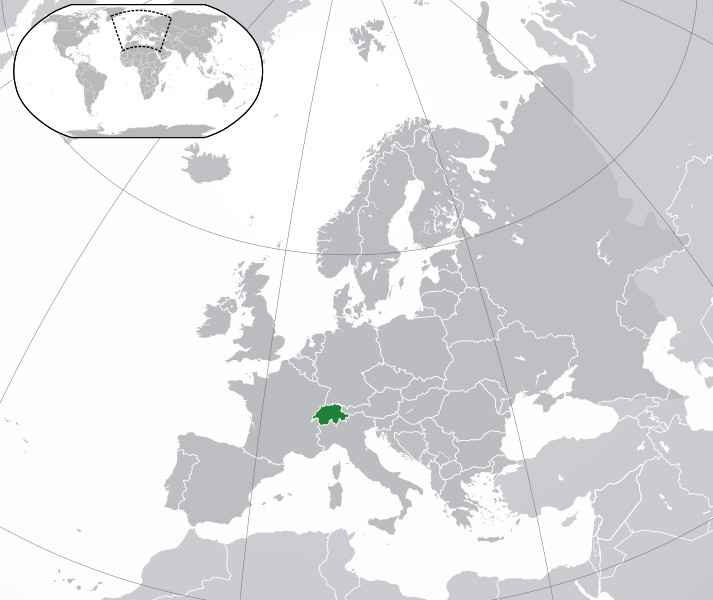 Switzerland (German: die Schweiz, French: la Suisse, Italian: la Svizzera, Romansh: la Svizra), officially the Swiss Confederation (Confœderatio Helvetica in Latin, hence its ISO country codes CH and CHE), is a federal republic consisting of 26 cantons, with Bern as the seat of the federal authorities. The country is situated in Western Europe where it is bordered by Germany to the north, France to the west, Italy to the south, and Austria and Liechtenstein to the east.
Switzerland (German: die Schweiz, French: la Suisse, Italian: la Svizzera, Romansh: la Svizra), officially the Swiss Confederation (Confœderatio Helvetica in Latin, hence its ISO country codes CH and CHE), is a federal republic consisting of 26 cantons, with Bern as the seat of the federal authorities. The country is situated in Western Europe where it is bordered by Germany to the north, France to the west, Italy to the south, and Austria and Liechtenstein to the east.
Switzerland is a landlocked country geographically divided between the Alps, the Central Plateau and the Jura. Its area is 41,285 km2 (15,940 sq mi). The Swiss population of approximately 7.8 million people concentrates mostly on the Plateau, where the largest cities are to be found. Among them are the two global cities and economic centres of Zürich and Geneva. Switzerland is one of the richest countries in the world by per capita gross domestic product, with a nominal per capita GDP of $67,384. Zürich and Geneva have respectively been ranked as the cities with the second and third highest quality of life in the world.
The Swiss Confederation has a long history of neutrality—it has not been in a state of war internationally since 1815—and did not join the United Nations until 2002. Switzerland is home to many international organisations, including the World Economic Forum, the International Olympic Committee, the Red Cross, the World Trade Organization, FIFA, and the second largest UN office. On the European level it was a founder of the European Free Trade Association and is part of the Schengen Agreement – although it is notably not a member of the European Union, nor the European Economic Area.
Switzerland comprises three main linguistic and cultural regions: German, French, and Italian, to which the Romansh-speaking valleys are added. The Swiss therefore do not form a nation in the sense of a common ethnic or linguistic identity. The strong sense of belonging to the country is founded on the common historical background, shared values (federalism, direct democracy, neutrality) and Alpine symbolism. The establishment of the Swiss Confederation is traditionally dated to 1 August 1291; Swiss National Day is celebrated on the anniversary.

Notes from Wikipedia








